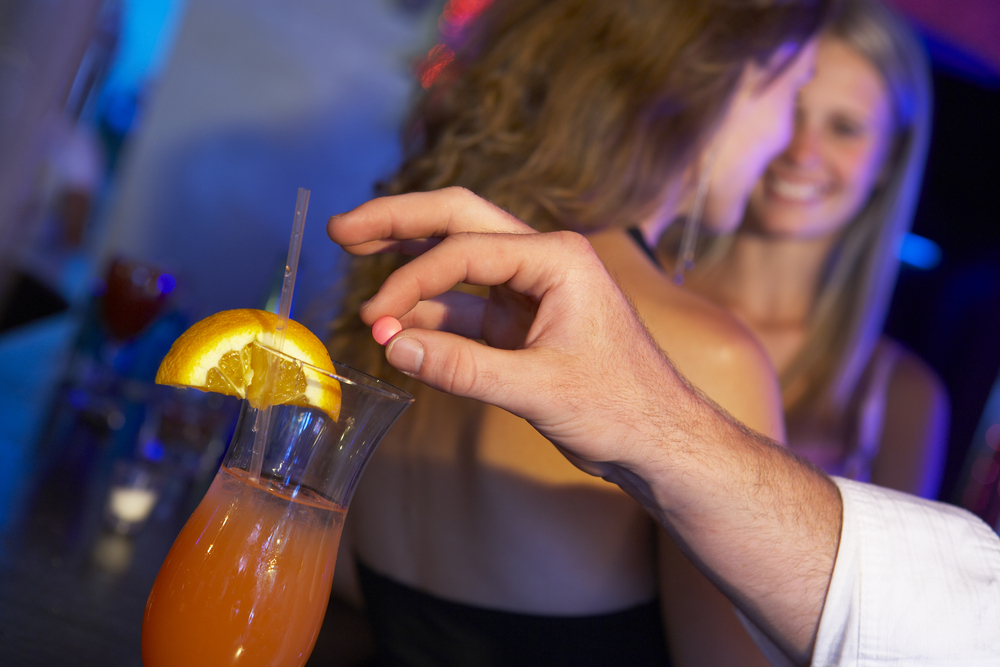With almost 200 incidents reported to the police across the country in the last two months – some involving needles – drug spiking in the UK has doubled over the last three years.
The most worrying thing about these incidents is that they took place at both licensed premises and private parties, and included male and female victims.
So, although we’d all like to believe we’re cautious with our drinks when enjoying a night out with our pals at uni, we need to be extra vigilant.
Here Caro Lettings explains in more detail what drink spiking is, what symptoms you should keep an eye out for, and how to stay safe whilst partying in the bustling city centre and at your student accommodation in Liverpool.
What is drink spiking?
Drink spiking happens when an extra shot of alcohol or another substance is put into someone’s drink without their knowledge or consent, usually to make them more vulnerable to sexual assault or theft.
It’s worth noting that any drink – whether alcoholic or non-alcoholic – can be spiked. The effects of the added substance can be unpredictable, but they’re often more severe when someone has already consumed alcohol or drugs.
In most cases of drink spiking, shots of alcohol are added to make them stronger. As a result, they cause someone to get drunk faster than anticipated.
Drugs such as Rohypnol (or Roofie for short) and Gamma Hydroxybutyrate (GHB) are also used to spike drinks. These are widely known as ‘date-rape’ drugs, as they are typically connected with attempting to commit physical or sexual assault. They have sedative effects and may produce feelings of euphoria.
Recreational drugs, like LSD, ecstasy, and ketamine, are also used to spike beverages.
Spiking someone’s drink – either with alcohol or drugs – carries a maximum 10-year prison sentence in the UK. It can make a person extremely vulnerable and put their health at serious risk.
10 signs your drink has been spiked
According to the NHS, if you experience any of the following symptoms, there’s a possibility you’ve been spiked:
- Confusion – especially the next day or after waking up
- Difficulty in walking
- Dizziness
- Drowsiness
- Hallucinations
- Memory loss
- Nausea and vomiting
- Paranoia
- Speech difficulty and slurring
- Visual problems (i.e. blurred vision)
Though it generally depends on the substance used, its dosage, and the type of drink it’s mixed with, the symptoms can vary depending on your size, weight, and the amount of alcohol you’ve consumed.
Some substances don’t produce a smell or taste, which makes it hard to know whether you’ve been spiked until it’s too late. Less-soluble drugs may affect the appearance of your beverage, causing murkiness or cloudiness, but this usually dissipates quickly and isn’t always visible in a dark room.
After discovering how their product was being abused, manufacturers of Rohypnol changed the formulation from a white pill to a capsule that turns blue when added to light-coloured or clear liquids. This makes it easier to recognise a drink that’s been spiked.
Steps to take if you suspect you’ve been spiked
If you start to feel intoxicated after having a small amount of alcohol or none at all, or you have a feeling that your drink has been spiked, there are a number of things you should do.
First and foremost, you need to immediately inform someone that you trust. It could be a friend from your student accommodation in Liverpool, someone from your course at uni, or even a member of staff if you’re in a pub or club.
These substances can soon affect your ability to communicate or remove yourself from the situation, so you need to act quickly.
Be wary of asking strangers for help. If you need urgent assistance – i.e. if you start to hallucinate, vomit, or feel very sleepy – dial 999 or ask a trustworthy person to take you to A&E right away.
It’s also worth notifying the police if you suspect your drink has been spiked, as drink spiking is an illegal offence. A blood or urine sample will be required to determine which drugs were used. Most drugs leave the body within 12 – 72 hours, so these tests will need to be carried out as soon as possible.
How to protect yourself from being spiked
When you’re having a good time with your mates – either at a nightclub in town or at a student’s house – it’s easy to get caught up in the excitement.
One minute you’re queueing at the bar or pouring yourself another drink, the next you’re nipping to the toilet before heading out for a smoke. Whilst we’ve probably all been there at some point or another, leaving your drink unattended – even for a split second – is the worst thing you can do.
Of course, you could ask one of your friends to keep an eye on it for you, but the chances are they’ll get distracted. The best way to prevent your drink from being spiked is to keep your glass in your hand at all times. If your drink is in a bottle, use your thumb to cover the top to prevent anyone from slipping substances in it whilst your back is turned.
Another top tip is to never accept a drink from someone you’ve never met before. Though they might have good intentions, you can’t be too sure whether they’ve added an extra shot or substance to it. Avoid sharing, swapping, or drinking any leftovers on the table that you’re sitting at, too.
For more tips, check out our recent blog ‘How to stay safe on a night out in Liverpool‘ or call Caro Lettings on 0151 318 4743. We are always on hand to help and will be more than happy to answer your questions.
